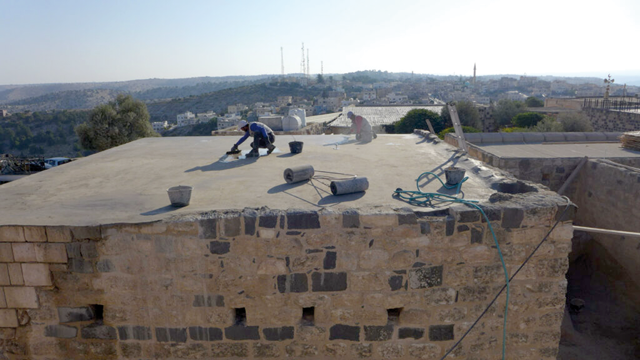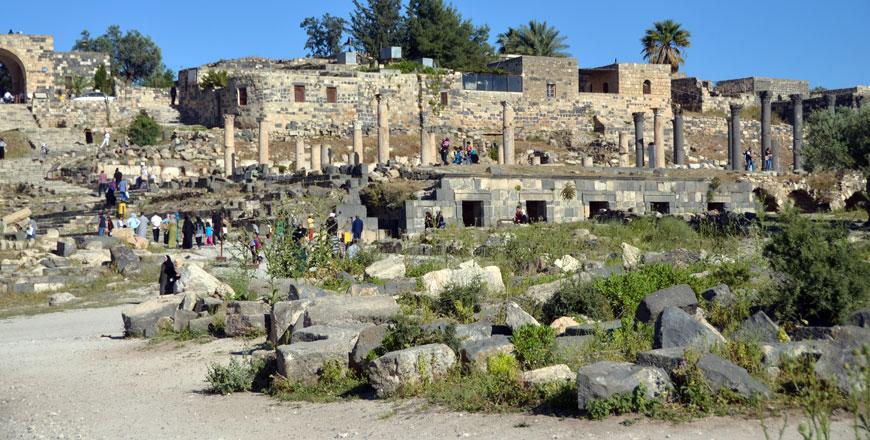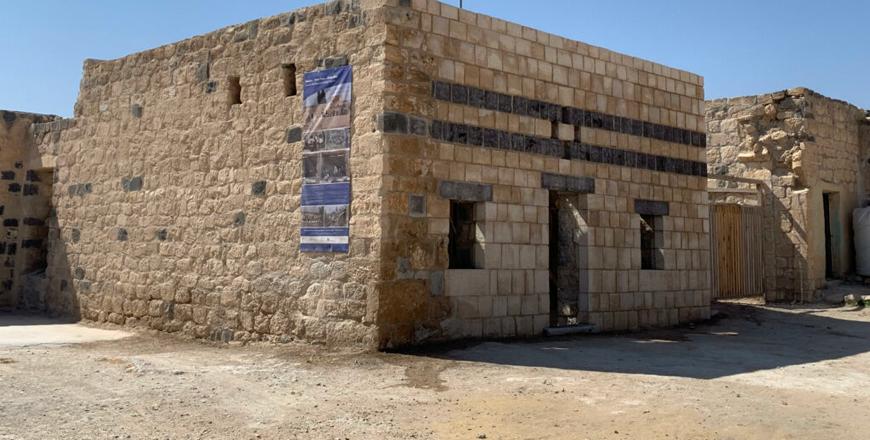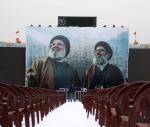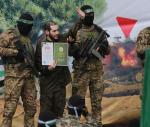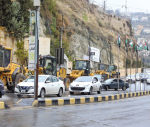You are here
Umm Qais archaeology summer school resumes after COVID closures
By Saeb Rawashdeh - Jul 15,2023 - Last updated at Jul 15,2023

Participants of the German Archaeological Institute’s summer school in Umm Qais, course instructors, representatives of the Department of Antiquities and Yarmouk University pose for a photo (Photo courtesy of DAI)
AMMAN — The German Archaeological Institute (DAI) summer school in Umm Qais offered students new insights into preservation and excavation.
The summer school was planned for 2020, but the COVID-19 pandemic shattered these initiatives, said Claudia Bührig from the DAI.
“The team’s previously cancelled programme of the Research Unit of the German Archaeological Institute in Amman, funded by the Cultural Preservation Programme of the Federal Foreign Office, was finally carried out this year,” noted Bührig.
She added that in the meantime, two educational videos on drawing and photographing of ceramic shreds were created and tested for their “field suitability”.
Furthermore, a complementary third part was filmed during summer school, discussing the processing of pottery from excavation to storage.
Bührig added that a handout was also designed using the information extracted from the online tutorial titled “Instructions for the archaeological drawing of ceramic shreds” and was made available to students.
“The resulting package, which is accessible in Arabic, aims to provide students with a lasting opportunity to use acquired knowledge and continue their education independently,” Bührig said.
She noted that the same applies to technical equipment, as methods with and without specific tools for ceramic documentation are also presented.
The existing open-source materials from iDAI.world and new instructional films create an accessible package for students that is universally pertinent to the introduction to finds processing, she said.
Bührig added that through cooperation with Yarmouk University in Irbid, young scientists were introduced to finds processing at an early stage to gain an initial experience with ceramics.
“The seven-day course, which took place during the excavation campaign in Umm Qais in June of this year was designed to gain insight into all processes from excavation to publication of pottery,” Bührig explained.
The workshop also includes a guided tour of a village from the late 19th to early 20th century by Ibrahim Rousan from the Department of Antiquities of Jordan, Umm Qais Museum, a visit to the Department of Fine Arts’ “Ceramics Studio” at Yarmouk University and a discussion with mason and restorer Ronny Brühlabout.
“Both documentation of pottery fragments from discovery to storage as well as discussion on the technical aspects of ceramic production and practical application led to a great experience for students and instructors alike,” Bührig said.
Related Articles
AMMAN — The collaboration between the Department of Antiquities (DoA) and the German Archaeological Institute (DAI) has extended its i
AMMAN — Over the course of the last 15 years, the Orient Department of the German Archaeological Institute in Berlin under the direction of
AMMAN — By 2024, the Bait Rousan courtyard complex in the upper village of Gadara, so called Hara Foqa, is to be restored in accordance with


